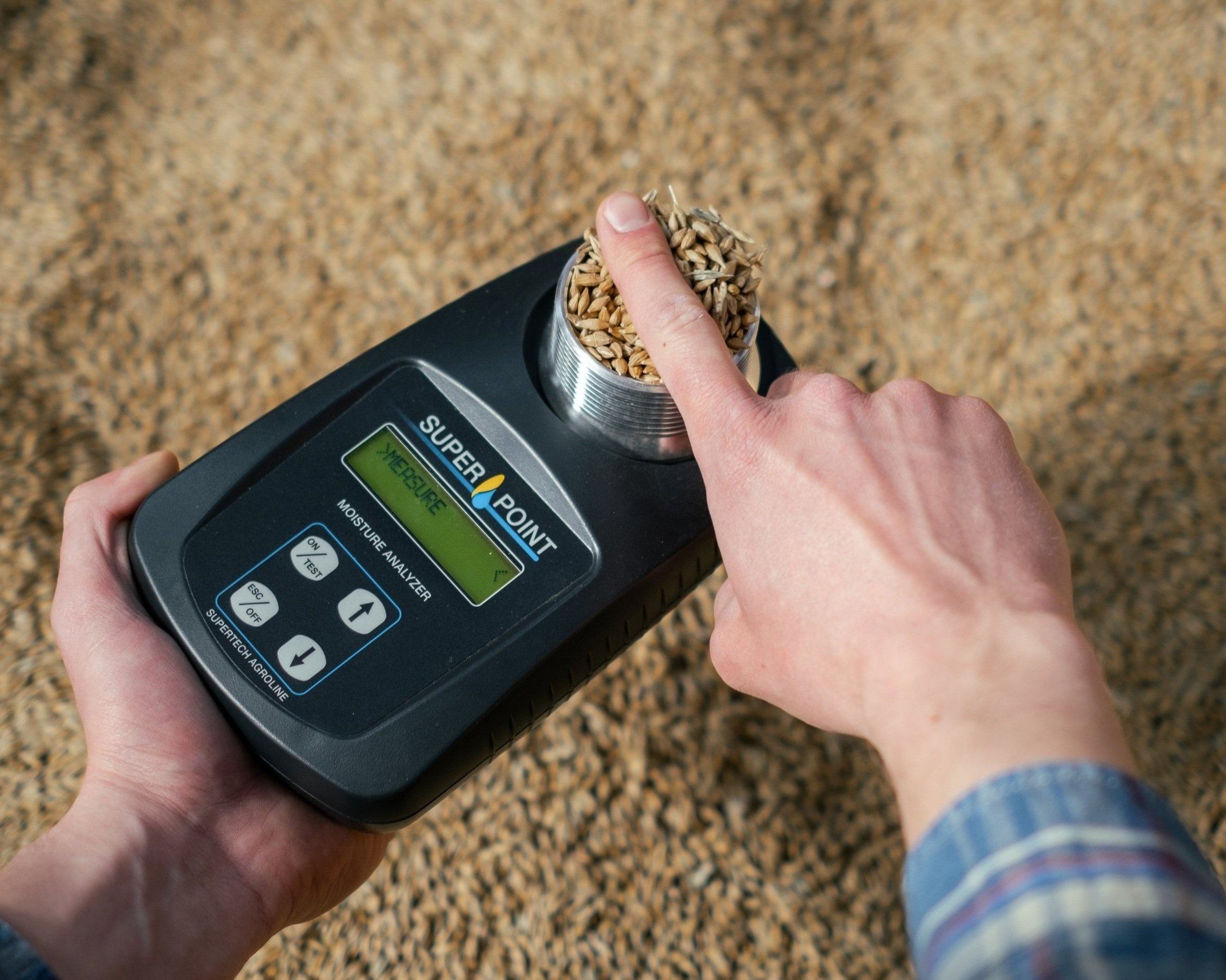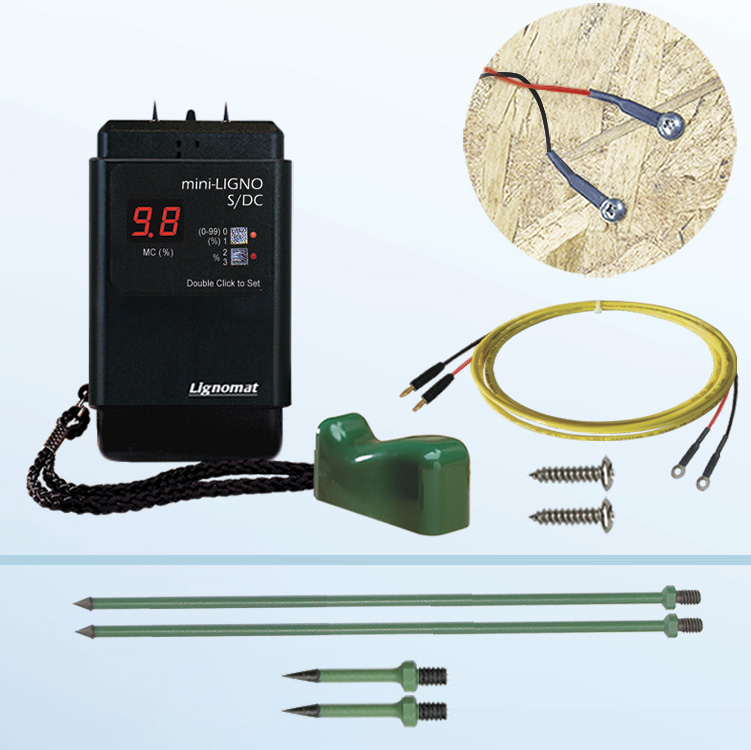How a Moisture Meter Can Improve Your Construction Jobs and Protect Against Damages
How a Moisture Meter Can Improve Your Construction Jobs and Protect Against Damages
Blog Article
The Ultimate Guide to Dampness Meters: A Comprehensive Review and Just How They Can Save You Money
Dampness meters serve as essential tools in spotting and checking moisture material in products, assisting in stopping costly problems and making certain the top quality of products. Comprehending the nuances of different kinds of dampness meters, their applications, and the possible cost-saving advantages they supply can be a game-changer for organizations and specialists alike.
Sorts Of Wetness Meters
Different sorts of moisture meters are readily available for various applications in different industries. One typical type is the pin-type moisture meter, which determines the electrical resistance in between 2 pins inserted into a material. This type is ideal for wood, drywall, and other structure products. Pinless dampness meters, on the various other hand, use electro-magnetic sensor plates to check a bigger area without creating damage to the product's surface area. Moisture Meter. These meters are optimal for promptly examining dampness degrees in huge areas such as wall surfaces and floors.

Infrared wetness meters determine the thermal residential or commercial properties of a product to establish its dampness web content non-invasively, making them beneficial for applications where pin or pinless meters may not be ideal. Recognizing the different types of wetness meters offered can assist sectors choose the most suitable tool for their certain wetness dimension needs.

Benefits of Utilizing Moisture Meters
Dampness meters supply vital advantages in properly examining and checking moisture levels in varied products and environments. One of the key benefits of making use of wetness meters is the prevention of prospective damage caused by excess moisture.
Furthermore, making use of wetness meters can lead to raised energy effectiveness. In agricultural settings, moisture meters play a vital role in enhancing plant yields by enabling farmers to monitor dirt dampness levels and make educated irrigation choices.
Just How to Choose the Right Dampness Meter
Selecting the proper wetness meter involves taking into consideration vital factors such as material compatibility, measurement range, and calibration accuracy. When choosing a moisture meter, it's vital to guarantee that the meter appropriates for the particular material you will be screening. Different products have differing electrical residential properties that can affect dampness readings, so choosing a meter designed for your product is crucial for accurate results. Additionally, consider the measurement range of the moisture meter. Guarantee visit the site that the meter can find moisture levels within the array needed for your applications. Calibration precision is one more essential aspect to remember. Select a dampness meter with reliable calibration to ensure specific and consistent readings. Some meters might call for regular calibration adjustments, so comprehending the calibration procedure is essential. By thoroughly reviewing these aspects, you can pick a dampness meter that meets your requirements and offers accurate moisture dimensions for your projects.
Correct Strategies for Wetness Meter Usage

Cost Savings Via Dampness Meter Applications
Exactly how can the calculated utilization of moisture meters lead to considerable expense financial savings across different markets? In the farming industry, wetness meters aid in establishing the optimal time for collecting crops, protecting against excess or over-drying wetness that can influence the final product's top quality.
Similarly, in building, wetness meters help avoid costly damages by spotting wetness degrees in structure materials, such as timber or get more concrete, which can lead to architectural issues otherwise resolved without delay. By recognizing trouble areas early on, service providers can take rehabilitative steps to stay clear of comprehensive fixings or substitutes, eventually conserving money and time.
Furthermore, in the food processing sector, dampness meters are crucial for monitoring item high quality and making certain conformity with safety policies. By properly determining dampness material in food, manufacturers can avoid spoilage, keep freshness, and minimize waste, resulting in substantial cost financial savings. On the whole, the tactical application of wetness meters is a beneficial investment that can result in considerable expense decreases and improved effectiveness throughout different sectors.
Conclusion
To conclude, wetness meters are important devices for gauging and spotting dampness degrees in numerous materials. By making use of the best moisture meter and following proper techniques, users can effectively avoid costly damages triggered by excess moisture. Purchasing a high quality moisture meter can result in considerable expense financial savings in the future by identifying potential problems at an early stage and enabling timely remediation. Ultimately, dampness meters are important tools for preserving the integrity and long life of products and frameworks.
Moisture meters serve as essential tools in detecting and keeping an eye on moisture content in materials, assisting in preventing costly problems and making certain the high quality of products. Infrared wetness meters determine the thermal residential or commercial properties of a material to identify its wetness material non-invasively, making them valuable for applications where pin or pinless meters might not be appropriate.Dampness meters provide vital advantages in precisely assessing and checking wetness levels in varied products and settings. In farming settings, wetness meters play an important duty in optimizing plant returns by allowing farmers to monitor dirt moisture degrees and make educated watering choices.In verdict, wetness meters are beneficial tools for finding and gauging wetness degrees in different products.
Report this page